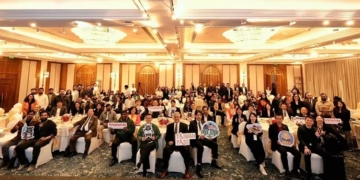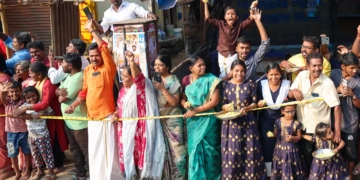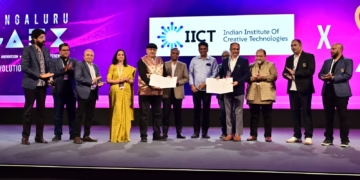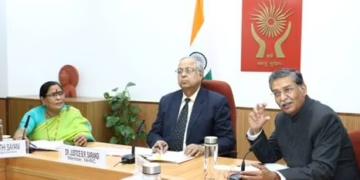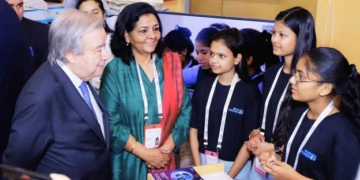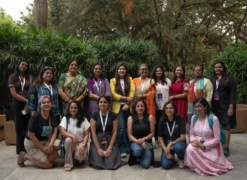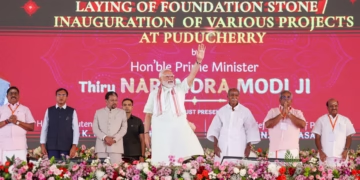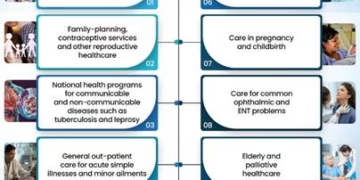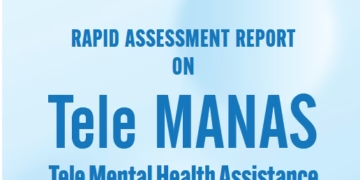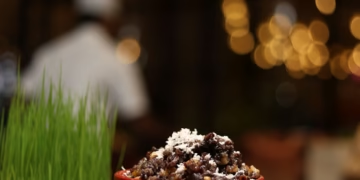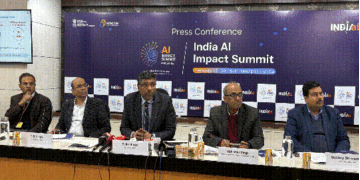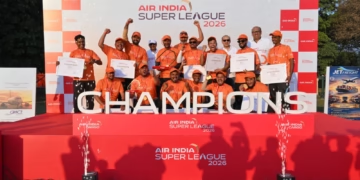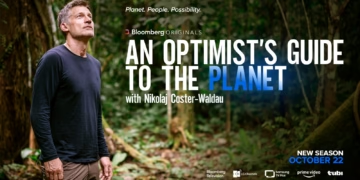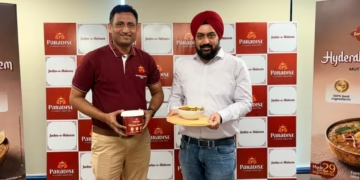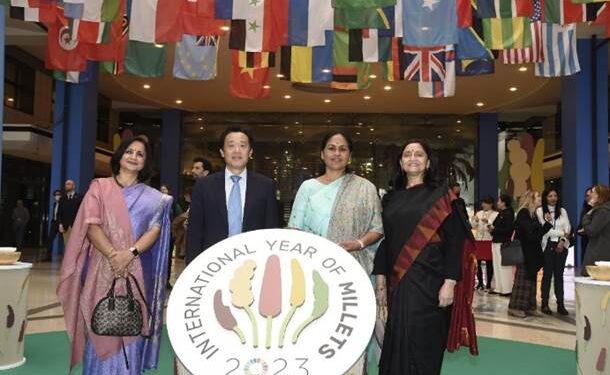India’s ceremonial message by PM Modi read out by MoS (Agriculture) Sushri Shobha Karandlaje
India will steer the IYM2023 celebrations worldwide and organise campaigns to promote the cultivation and consumption of Millets – PM Modi
IYM2023 will provide an opportunity to increase global production and promotion of millets as a major component of the food basket – Shri Narendra Singh Tomar
The Food and Agriculture Organization (FAO) of the United Nations, organized an opening ceremony for the International Year of Millets – 2023 (IYM2023) in Rome, Italy. An Indian delegation led by Shobha Karandlaje, Minister of State, Agriculture & Farmers Welfare along with Smt. Shubha Thakur, Joint Secretary (Crops), DA&FW and other senior officials were present at the opening ceremony. During the event, India’s ceremonial message by the Prime Minister Shri Narendra Modi was conveyed by Sushri Shobha Karandlaje.
Sushri Shobha Karandlaje conveyed PM Modi’s compliments to the United Nations for declaring the Year 2023 as the International Year of Millets. PM, through his message, thanked the global community for supporting India’s proposal to mark the International Year of Millets (IYM). It was mentioned that Millets are good for the consumer, cultivator and climate. Millets are nutritious and can be cultivated in semi-arid zones besides consuming less water for irrigation. There is need for diversity on our land and our dining tables. Raising awareness to create ‘Millet Mindfulness’ is an important part of this movement.
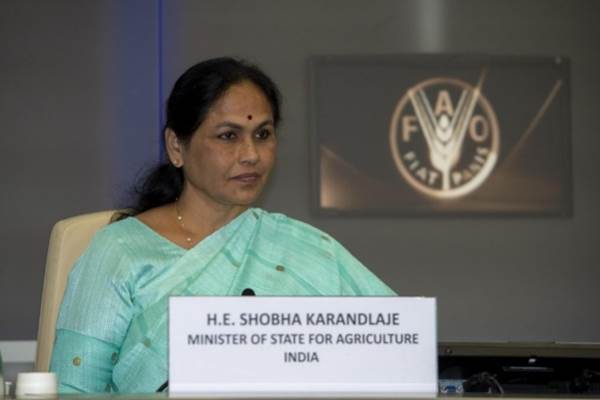
Sushri Shobha Karandlaje, in her speech, said nations need to collaborate to develop a sustainable future, and millets will play a pivotal role in the process. There is an opportunity to contribute to the future well-being of mankind by bringing back ancient food grains through IYM. India will steer the IYM2023 celebrations worldwide and organise campaigns to promote the cultivation and consumption of Millets, both in India and abroad during the next year.
Sushri Shobha Karandlaje said the IYM2023 will lead India towards Food and Nutritional Security. Millets are considered ‘Smart Food’ as they are easy to cultivate, mostly organic and contains high nutritional value, she said. With PM Modi’s vision of “Vasudaiva Kutumbakam” (The World is One Family), the IYM2023 celebration is an opportunity for India to promote Nutri-cereal Millets globally and place them in the world’s ‘food map’, she added.
Speaking on the occasion, Director General, FAO Mr. QU Dongyu said the IYM2023 will provide us with a unique opportunity to give visibility to crops that have great potential to strengthen global nutrition, food security, decent jobs & economies, while accelerating Climate Action. Millets are basically Asian crops, climate resilient, lead to sustainable development and help ensure Food Security & Nutrition for all, he said.
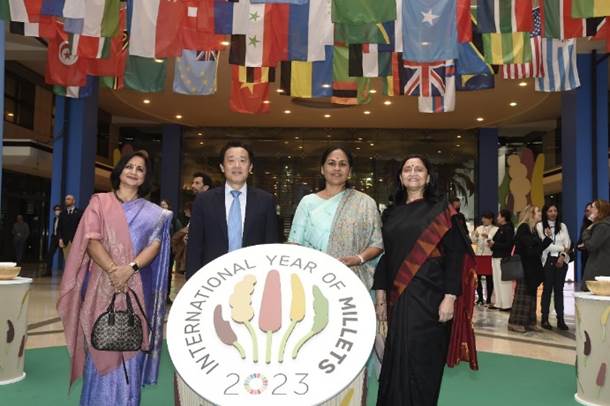
In his message on the occasion, the Union Minister of Agriculture and Farmers Welfare, Shri Narendra Singh Tomar said the IYM2023 will provide an opportunity to increase global production, efficient processing and better use of crop rotation and promotion of millets as a major component of the food basket.
At the Ministry of Agriculture and Farmers Welfare in New Delhi, Minister of State, Shri Kailash Choudhary, attended the virtual opening ceremony event and addressed the senior officials of the ministry. Shri Kailash Choudhary stressed upon adopting millets as part of daily diet and spreading awareness throughout the country highlighting the benefits of millets. He called upon all to popularize Millets, making a beginning with their own kitchen. A pledge to include millets in their everyday food was also undertaken on the occasion.
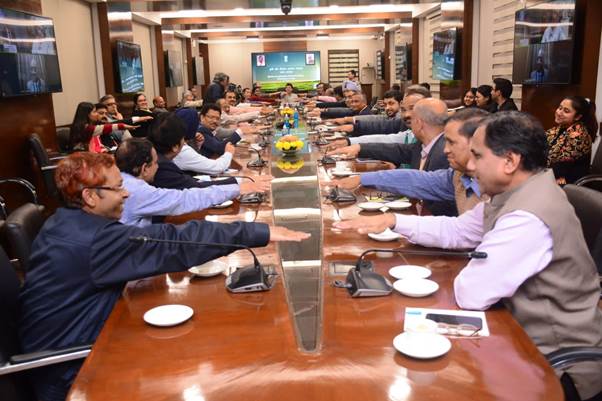
To mark the significance of the day in India, several initiatives have been taken by the Department of Agriculture & Farmers Welfare (DA&FW). These include an extensive social media campaign on the importance of Millets in Indian context, showcasing Government’s collective effort for sustaining the momentum, citizen engagement drives involving all other Ministries and several other outreach activities to celebrate IYM.
Spearheaded by the Prime Minister, the Government of India sponsored the proposal for International Year of Millets (IYM) 2023 which was accepted by the United Nations General Assembly (UNGA). The declaration has been instrumental for the Government of India to be at the forefront in celebrating the IYM. The Prime Minister Shri Narendra Modi has also shared his vision to make IYM 2023 a ‘People’s Movement’ alongside positioning India as the ‘Global Hub for Millets’.
In the backdrop of the UNGA adoption of India-sponsored resolution International Year of Millets – 2023, the DA&FW aims to promote cultivation and consumption of Millets at a larger scale and bring it to the entire globe.
Recognising the enormous potential of Millets, which also aligns with several UN Sustainable Development Goals (SDGs), the Government of India (GoI) has prioritized Millets. A sub-mission on National Food Security Mission – Nutri Cereals was implemented considering the high-nutritive value, potential for economic empowerment of small & marginal farmers and contribution in maintaining the earth’s biodiversity; in April 2018, Millets were rebranded as “Nutri Cereals”, and the year 2018 was declared as the National Year of Millets, aiming at larger promotion and demand generation.
Towards this endeavour, through a collaborative approach, the GoI urges everyone including the Indian embassies, International Organizations, Academia, Hotels, Media, Indian Diaspora, Start-up communities, Civil Society, and all others in the Millets value-chain to come forward and join hands to revive the forgotten glory of ‘Miracle Millets’ through the grand celebration of International Year of Millets – 2023.
‘Millets’ were among the first crops to be domesticated in India with several evidence of its’ consumption during the Indus valley civilization. Being grown in more than 130 countries at present, Millets are considered traditional food for more than half a billion people across Asia and Africa. In India, millets are primarily a kharif crop, requiring less water and agricultural inputs than other similar staples. Millets are important by the virtue of its mammoth potential to generate livelihood, increase farmers’ income and ensure food & nutritional security all over the world.
****





